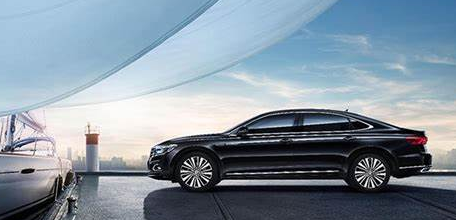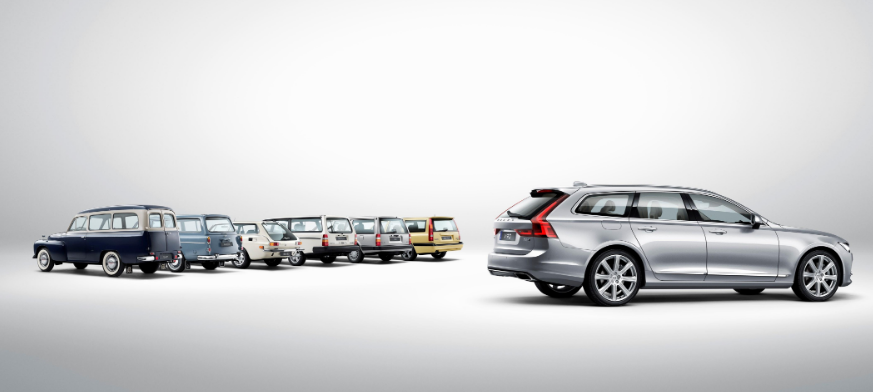"2023 McKinsey China Automotive CEO Special Issue" released! Driving to 2030 - the auto industry race
2030 can be expected, but the car industry race to 2030 is not a smooth road! As a person who has been working in China's automotive consulting industry for more than ten years and who has experienced and recorded countless twists and turns with many people in the industry, we sincerely hope that the people at the helm of the auto companies can clearly recognize the difficulties and challenges of transformation, keep vigilant at all times, avoid the recurrence of some chaos, and return to the source of value creation:
Say goodbye to "satellite release" : domestic car companies are never short of lofty ideals. If a simple summary of the 2025 and 2030 electric vehicle sales targets announced by many car companies, the sum is even close to the global total, can not help but wonder how feasible these ambitious goals. Looking up at the stars is important, but only down to earth, can be stable and far!
Balancing short-term profitability with long-term value creation: How to deal with the mismatch between short-term profitability and long-term value creation is a difficult problem for many auto companies. Enterprises can not be wishful thinking, immersed in the "profit for short-term sales" myth, do not talk about bicycle profit, do not calm down to cultivate internal skills; It should not be limited to the pressure of short-term financial assessment, and it is not enthusiastic and good at investing in long-term core technical capabilities. Similar "going to extremes" are not desirable, are not correct transition play!

Complete the evolution from the "2B gene" to the "2C gene" : "customer operation" or "customer-centric" is increasingly becoming the key word of automotive retail and service innovation. We have seen the pioneering and successful cases of some leading enterprises in this field, but at the same time, we have also witnessed a large number of later comers to follow suit and deliberately imitate. The imitation effect can be described as uneven, difficult to say, there is no lack of "imitation"; What is more, although the mouth is chanting "customer-centric", but the landing is some of the measures that make customers chill, called "draining the fish."
Do not seek new differences, ambitious: Chinese car companies seem to have achieved a "great leap forward" in technology overnight - full stack development, high-level electronic and electrical architecture, native electric vehicle platform, high-level autonomous driving, etc., and almost every car company's press conference has taken the time to emphasize that it has mastered these "black technologies." But the glitz goes hand in hand with lower-level basic features that consumers desperately need, such as AEB (automatic emergency braking), and occasional news of poor test results. Such a gap is impossible without causing suspicion among onlookers.
Bid farewell to the "military warrant" type of guarantee: due to the superposition of many factors, the guarantee is becoming a topic of concern in the whole industry. However, many enterprises do not conduct in-depth discussions on the development of the supply chain, lack of understanding of the depth pattern of their own upstream supply chain, and do not do research on new entrants in emerging fields, and all efforts to ensure supply are pressed on the "military warrant" type of "force guarantee XXX". Is it good for a time, but not for a lifetime? Notice that the key to guarantee is to broaden the "supply", rather than demanding "guarantee"!

Face the difficulty and challenge of going to sea: China's automobile exports have been hot recently, and the export scale has pushed Japan, Germany and other countries, and is even expected to surpass. But at the same time, the overall overseas business of Chinese car companies is still in its "infancy" : the combined sales of passenger cars by all Chinese car companies in overseas markets is less than 20% of the sales of a leading Japanese car company outside Japan. Systematically underestimating the difficulty of getting to sea is a more serious problem! In terms of overseas marketing system construction, brand reputation, after-sales support and other dimensions, international car companies have spent decades to accumulate relevant resources and channels, and it is difficult to catch up in the short term; At the same time, regardless of the specific national conditions of the target country, blindly copying the product design and marketing plans of the home country, etc., these old problems that have been repeatedly criticized by foreign car companies in China are also being repeated in the overseas business of quite a number of Chinese car companies! If this kind of intractable disease is not overcome, whether it can be "civil war expert" let alone, "foreign war amateurs" is almost the inevitable outcome!
"Carbon reduction" from slogan to implementation: in the context of "dual carbon", many car companies have expressed their willingness to reduce carbon on different occasions, and some even announced specific road maps. However, carbon reduction is a systematic project, which not only requires multidimensional optimization and even reshaping of its own operations, but also requires penetrating traceability of the upstream supply chain and collaboration with different echelons of business partners, which is not simply investing in a number of rooftop PV and paired with energy storage facilities.
- ABB
- General Electric
- EMERSON
- Honeywell
- HIMA
- ALSTOM
- Rolls-Royce
- MOTOROLA
- Rockwell
- Siemens
- Woodward
- YOKOGAWA
- FOXBORO
- KOLLMORGEN
- MOOG
- KB
- YAMAHA
- BENDER
- TEKTRONIX
- Westinghouse
- AMAT
- AB
- XYCOM
- Yaskawa
- B&R
- Schneider
- Kongsberg
- NI
- WATLOW
- ProSoft
- SEW
- ADVANCED
- Reliance
- TRICONEX
- METSO
- MAN
- Advantest
- STUDER
- KONGSBERG
- DANAHER MOTION
- Bently
- Galil
- EATON
- MOLEX
- DEIF
- B&W
- ZYGO
- Aerotech
- DANFOSS
- Beijer
- Moxa
- Rexroth
- Johnson
- WAGO
- TOSHIBA
- BMCM
- SMC
- HITACHI
- HIRSCHMANN
- Application field
- XP POWER
- CTI
- TRICON
- STOBER
- Thinklogical
- Horner Automation
- Meggitt
- Fanuc
- Baldor
- SHINKAWA
- Other Brands




































































































































